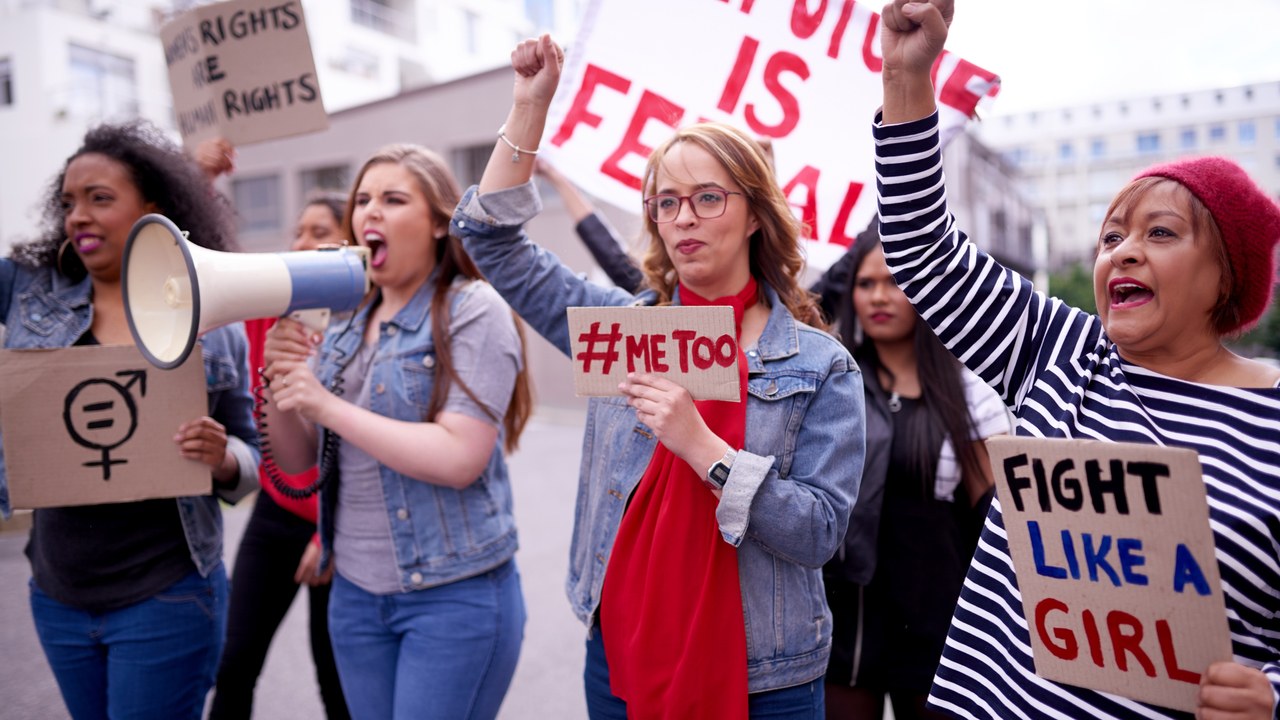Unwanted Sexual Attention at Work Is Down Amid #MeToo Movement, But There's a Catch

The #MeToo movement shook Hollywood, the media, and high-powered corporations across America, but questions remain about its ramifications in other industries and professional work spaces. Now, new research published in the scientific journal Plos One indicates there might be some measurable changes in the workplace as a result of #MeToo: In the group interviewed, reports of sexual coercion and unwanted sexual attention in professional settings decreased since the movement took off. But not without some other (perhaps related) side-effects.
Researchers first talked to 250 working women in the U.S. in 2016 and asked questions about the gender harassment, unwanted sexual attention, and sexual coercion faced at their jobs. The researchers conducted a second survey in September 2018, reconnecting with women from the first group to see how their experiences had changed as conversations around #MeToo evolved. The researchers found that 25 percent of women reported being sexually coerced at work in 2016, but that number declined to 16 percent in 2018. Unwanted sexual attention also dropped, with 66 percent of women reporting instances in 2016 and 25 percent in 2018.
While these data points do seem like progress, one troubling stat stands out. In this study, there was an increase in reports of gender harassment, with numbers rising from 76 percent of women in 2016 to 92 percent in 2018. The researchers attribute this to what they call a “backlash effect,” or an an increase in hostility toward women following the #MeToo moment.
“Organizations should also pay attention to gender harassment, including bullying and sexist comments about women,” the researchers wrote in the Harvard Business Review. “One woman told us she believes that women who have been empowered by #MeToo to call out inappropriate behavior have faced more hostility among coworkers. It is important that organizations are aware of this, as constant exposure to gender harassment can be just as damaging to women as the most egregious forms of sexual harassment.”
An uptick in gender harassment is even more worrisome, given research that LeanIn.Org and SurveyMonkey released a few months ago that found 60 percent of male managers admitted to feeling uncomfortable participating in common workplace activities with a woman. Those fears could affect mentorship and support for women at work, barring their opportunities to prove themselves and move up if their managers are male. Between that and the gender-based harassment that this report illuminates, it’s clear that there are still post-#MeToo hurdles to navigate, and plenty of work to be done on the part of employers and work organizations.